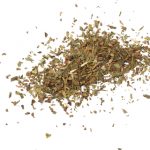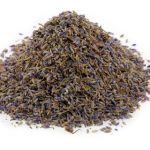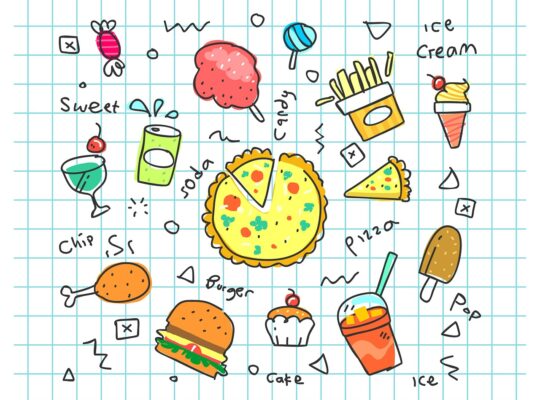How do you know that you are suffering from anxiety? Sometimes when confronted with an overwhelming or long-term event or task, people can unknowingly manifest fear and anxiety which plays out through their physical bodies. On a small scale, symptoms could be as simple as excessive sweating. Or worse, you could find yourself suddenly doubled over in pain due to a severe upset stomach – think in terms of irritable bowel syndrome (or IBS).
In light of recent events over the past two years or so, few can say that they’re exempt from experiencing some level of anxiety. Unfortunately, the longer we are overcome by anxious thoughts, the more challenging it becomes to overcome them. A good baseline (or “ground zero”) tip for overcoming anxiety is to implement self-reflection with the intent of identifying your triggers and finding ways to combat them (for the long haul preferably). Only then can one find options such as the following proven strategies toward helping you to stay calm and return to center.
Tip #1: Try deep breathing exercises:
Critics claim that this never works but practicing focused deep breathing can help you a lot when faced with a challenging situation. For example: Take 3 slow, deep breaths with a short pause between breaths. Deep breathing reduces your heartbeat rate thus helping you calm down.
Deep, slow breaths reconnect us, for it is not just oxygen we are taking in but pranasee ki, which is the Divine life force. We are breathing the breath of God.” ~Diana Cooper, author of A New Light on Ascension.
Cooper goes on to say that: “After any trauma or problem, [Ascended] Masters can bring themselves back to equilibrium again in three breaths. This is something to practice.” (p. 38)
Tip #2: Steer clear of negative thoughts or try going on a worry fast:
Sometimes it is useful to learn to question your thought pattern. Try to avoid negative thoughts as they can distort the severity of your situation. The best way to achieve this is by challenging your fears, questioning their authenticity, and determining how you can take control of your mind.
On the other hand, per the teachings of Paramhansa Yogananda, you could try a worry fast. Every day, set aside between one to three hours for say three times a day, when you’ll refuse to worry reaffirming to yourself: “…I am on a worry fast. I cannot afford to worry.” From a few hours to a day or week, he further recommends taking a partial or complete worry fast “to prevent the accumulation of worry poisons in your system entirely.”
One of his worry fast affirmations or use for anytime you feel emotionally overwhelmed: “I can do only my best, no more. I am satisfied and happy that I am doing my best to solve my problem; there is absolutely no reason why I should worry myself to death.” You do your best and let your Higher Power [God/Source/I AM] take care of the rest.
Once you’ve mastered the worry fast, you can take the fear fast, then go on a courage diet, followed by a wisdom diet. You can learn more about these techniques in Divine Will Healing compiled by Mary Kretzman.
Even with these spiritual practices, some may still need professional help via a licensed mental health therapist for conquering your negative thoughts and that’s nothing to be ashamed about.
Tip #3: Go on a 15-minute walk or a mini-yoga session:
You may never be able to get rid of anxious thoughts until you get engrossed in something else. Although the situation may be there to stay – at least for now – but you can choose to walk away from it. Take some time and do what you like doing for a hobby. Perhaps try going for a walk to help you better explore your body and give your mind a mental break. Another excellent way to relieve your anxiety.
Tip #4: Aromatherapy can be a great reliever of anxiety:
If not triggering for allergic or asthmatic sufferers, aromatherapy helps in the activation of certain receptors in the brain thus relieving anxiety. It comes in various forms such as candles, oils, incenses, and scents like sandalwood and chamomile, or choose an aromatic scent like peppermint Ruled by Mercury and the element Fire, PEPPERMINT LEAF is a beneficial stimulant that must always be diluted regardless of its form. A diffused form of peppermint sprayed into the More, lavender
Ruled by Mercury and the element Fire, PEPPERMINT LEAF is a beneficial stimulant that must always be diluted regardless of its form. A diffused form of peppermint sprayed into the More, lavender LAVENDER is commonly used in skincare, fragrances, aromatherapy, and perfumes. It's ruled by Mercury and the Element of Air and offers protection against the evil eye. More, etc. Such scents are very soothing, and can help shift your mind from troubling events or situations. In this case, let your nose be your guide.
LAVENDER is commonly used in skincare, fragrances, aromatherapy, and perfumes. It's ruled by Mercury and the Element of Air and offers protection against the evil eye. More, etc. Such scents are very soothing, and can help shift your mind from troubling events or situations. In this case, let your nose be your guide.
Each one of us is responsible for creating our reality. Our thoughts, words, emotions, willpower, and actions direct our life and when we totally accept this, our life changes.” ~Diana Cooper
Tip #5: Journal/Jot down your anxiety triggers:
People suffering from Generalized Anxiety Disorder (GAD) shouldn’t just focus on simple coping methods alone. They should also adopt other long-term strategies that will help lessen the symptoms severity and eventually wipe out the negative thoughts. With that said, if you aren’t ready for a worry fast, then try jotting down what makes you anxious. Journalling helps to get it out of your mind thus making it less tormenting. This strategy is particularly relevant for people with sporadic anxiety.
People with GAD can also achieve great results with this strategy. However, from a spiritual perspective, unless desired, you shouldn’t keep old journals as they can serve as reminders as well as hold negative energies in your space preventing you from truly moving on. You should appropriate destroy old journals especially if you don’t want them to fall into the wrong hands now or later.
Tip #6: Eat a healthy diet:
Don’t skip any meals and always strive to eat a well-balanced, whole-foods diet consisting of fresh fruits and vegetables and if not vegan, consume only clean meat from grass-fed, free-range animals. Always omit foods that do not agree with you. A healthy diet works toward helping you get (or stay) healthy and have sufficient energy to get through whatever’s got you down. If needed, seek help with a licensed professional such as a nutritionist or registered dietician to develop a meal plan for getting on track.
Tip #7: Reduce caffeine and alcohol:
Excess alcohol and caffeine are known to trigger panic attacks and aggravate anxiety since they both act as central nervous system (CNS) depressants. Unfortunately, man-made versions of caffeine are easily accessible via coffees, teas, and soft drinks, while alcohol (and hard liquor) isn’t referred to as “spirits” for no reason.
Physiologically speaking, caffeine may keep us alert for the short term but it side effects when we try to depart from it leave us feeling worse, thus contributing further to our feelings of stress and anxiety. Meanwhile, excessive alcohol use disrupts liver and brain activity. Acute and chronic alcohol use contributes to more body fat, especially in the midsection (a.k.a. beer belly) – or worse, could result in death.
Consider natural stimulants like L-Theanine, a green-tea supplement known for reducing anxiety safely, or try natural sweeteners, such as local honey (if not allergic). If you must drink alcohol, then drink responsibility and in moderation.
Tip #8: Exercise regularly:
Daily exercises help you feel good and maintain good mental health. You can achieve this through the following exercise tips:
- Set specific and realistic goals: Aim at daily consistency instead of perfect workouts. Instead of waiting to go for a 4-hour marathon during the weekend, try a 20-minutes’ walk, jog, bike or dance every day. Frequency and consistency are more important than the quantity of a workout.
- Select the best exercise (for your personality) – there are different forms of exercise, all fun and enjoyable. If you are an extrovert, enroll in a class or group activity. Introverts often prefer solo pursuits.
- Listen to some cool music – distract your mind with an iPod or any other device to download music, podcasts or audiobooks. Some people will find it easier to get rid of negative thoughts if they listen to something else they find interesting or entertaining.
- Be patient – a new exercise program requires you to be patient. It may take you anywhere between 4-8 weeks to get relief from your anxiety.





